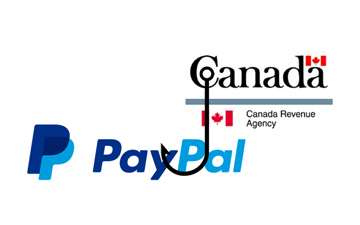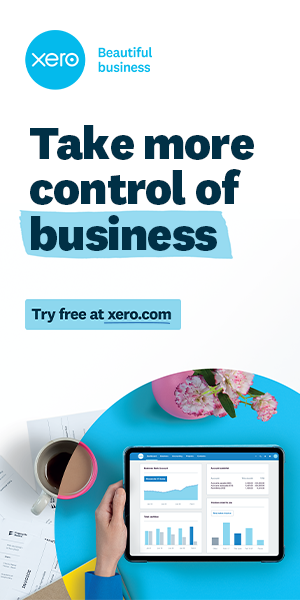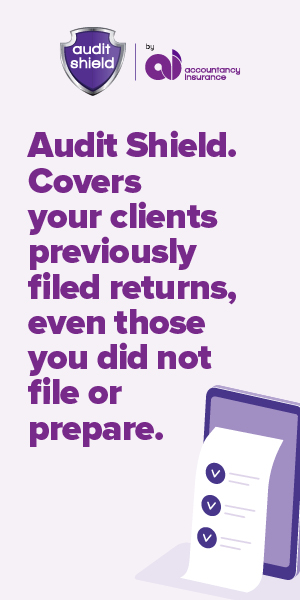CRA goes fishing for PayPal users on hook for taxes

The Canada Revenue Agency is looking to catch PayPal-registered businesses not declaring income or tax
TORONTO, Nov. 15, 2017 – In the latest successful fishing expedition by the Canada Revenue Agency (CRA), U.S.-based PayPal was served last week with a Federal Court of Canada order requiring them to submit to the CRA specific information about PayPal Business account holders who sent or received a payment between January 1, 2014 and November 10, 2017.
A fishing expedition is where the CRA goes to a third party to obtain general information that may aid them in auditing taxpayers.
This Federal Court order is far from the first time that CRA has required third parties, including shared economy engines, to release information about their users in order to carry out tax compliance auditing. Challenges to these releases have generally been denied and the courts have permitted this type of broad CRA information gathering, including recently from condo developers as part of the CRA condo audit.
As I previously wrote on Findependence Hub, the CRA is well aware of the ease of business use of the shared economy, and the fact that not all participants are properly reporting their income and GST/HST obligations, thereby blending the shared economy with the underground one. And, as I indicated in that article, it is a simple matter for the CRA to obtain transaction information from PayPal or Stripe and use that information for a very focussed tax audit.
Given that the underground economy is a major target of CRA tax investigation, and that the CRA has said so repeatedly, this PayPal court order was inevitable. The agency has previously carried out an audit of Uber to obtain information about drivers and, some time ago, obtained a court order for the records of eBay.
PayPal now has 45 days, from November 10, 2017, in which to release the information in compliance with the Federal Court order; the company has indicated that they intend to comply with the court order.
PayPal is required to release to CRA the following details of its business account holders:
- The full name of every individual or corporation holding a business account that has a Canadian address.
- The date of birth of each individual holding a business account.
- The business name, if applicable.
- The telephone number(s) of the corporation or individual holding the business account, if available.
- The full address(es) of the corporation or individual holding the business account.
- The email address of the corporation or individual holding the business account.
- The Social Insurance Number and/or Business Number of the corporation or individual holding the Business Account, if available.
And, the CRA seeks the following information on transactions made by the account holder:
- The total number and value of received transactions for each calendar year between January 1, 2014 and November 10, 2017.
- The total number and value of sent transactions for each calendar year between January 1, 2014 and November 10, 2017.
Armed with this information, it should be a simple matter for CRA to data mine transaction volume over a certain dollar amount and compare to business income reported on a T2125 form.
If there is a discrepancy, a detailed audit questionnaire will likely be forthcoming. All business transactions carried out in Canada, by Canadian residents or non-residents, are fully taxable and have to be reported to CRA. Further, GST/HST may have to be charged if annual sales reach $30,000 or more.
A PayPal business account is not necessarily indicative of business being carried out but is certainly suggestive of the existence of a business that has to be reported to CRA. The test is: What is the exact nature of the activity?
An incidental sale of excess stamps from a stamp collection, or spare photography equipment by a hobbyist, is likely not business income. The ongoing purchase and sale of stamps or photography equipment probably is a business but consultation with a Canadian tax lawyer may be needed to make that determination.
So, what happens to a PayPal business account holder who has just received the email notification from PayPal that the details of their transactions are being forwarded to CRA?
If they clearly have unreported business income or GST/HST and have not yet been directly contacted by CRA, they should still be eligible to submit a voluntary disclosure program application. This will mean no tax prosecution or tax penalties and a possible reduction of interest on taxes owing.
If it is clear that no business was carried out, then they should wait for contact from CRA and then reply with details showing that there was no business activity and a tax professional may not need to be retained at that time. However, it is always better to have professional submissions to ensure that the proper information is provided.
If the CRA tax auditor does not accept those submissions, then a Canadian tax lawyer or accountant should then be immediately involved before any appeal periods expire.
Finally, it appears that the CRA's Voluntary Disclosures Program rules are expected to change on January 1, 2018, without taking into account the valid objections submitted during the consultation period. This type of situation — a mass release of data to CRA by a third party — may no longer qualify for tax amnesty under the new rules.
David J Rotfleisch, CPA, JD is the founding tax lawyer of Rotfleisch & Samulovitch P.C., a Toronto-based boutique tax law firm. With over 30 years of experience as both a lawyer and chartered professional accountant, he has helped start-up businesses, resident and non-resident business owners and corporations with their tax planning, with will and estate planning, voluntary disclosures and tax dispute resolution including tax litigation. Visit www.Taxpage.com or email David at david@taxpage.com







(0) Comments